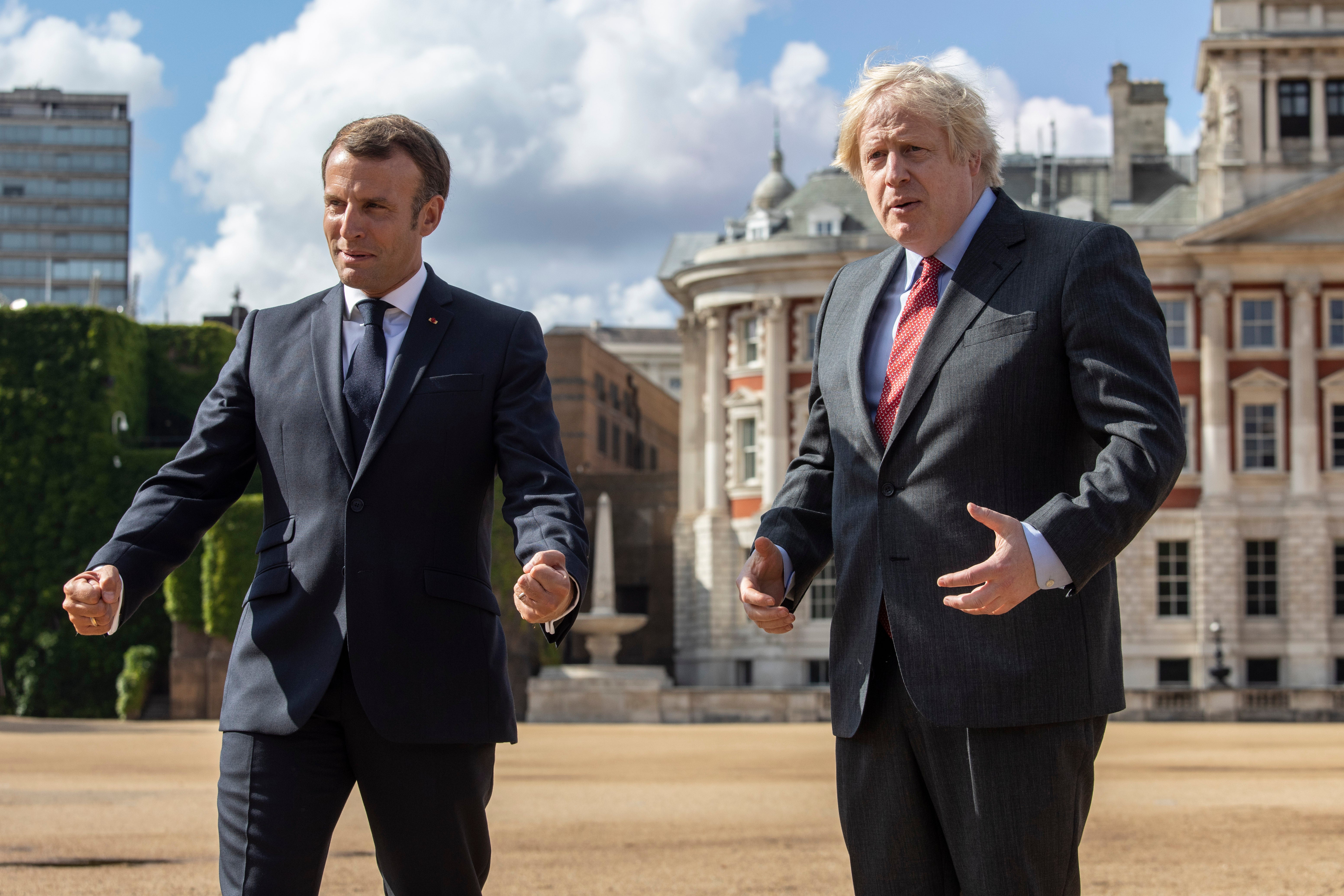Like it or not, the UK and France need to get along – the question is how
The popular view is that a rapprochement will not be possible while Boris Johnson and Emmanuel Macron are in power. But that is ridiculous, says Hamish McRae


The UK has to rebuild its relationship with France. Simple as that. It is profoundly in the interest of both countries to get along better. This isn’t only about dealing more humanely and effectively with would-be migrants to Britain who are camping out in horrible conditions in France, though that is part of it. It is a much wider issue.
Our two countries are important trading partners. We have an almost identical interest in protecting our citizens from aggression from every quarter, for quite aside from the obvious state-sponsored military challenges, the number of cyberattacks on Europe has doubled in the past year. We are closely aligned in our concerns about the climate crisis too. And aside from different visions for the European Union, which could in any case change, we have a broadly similar view on global politics and economics. We believe that democracy is the least bad form of government, and we believe in the mixed-market economy with the government and private sector both having key roles.
The popular view right now is that a rapprochement will not be possible while Boris Johnson and Emmanuel Macron are in power. But that is ridiculous. The relationship is much bigger than the personalities of the two current elected leaders. In any case, while it looks likely that Johnson will be in office for another two or three years, it is not clear that Macron will win the next election he faces in April. The centre-right party, Les Republicains, has just chosen a potentially effective candidate in Valerie Pecresse. Besides, the rest of us have to work with the politicians we have got. So what’s to be done?
Put simply, we cannot wait for the politicians. Various interest groups have to work around them to make agreements. The principle of negotiation is to do the easy bits first. You get agreement on the things where there is common ground and park any areas where there is conflict. Once the easy stuff is done, you tackle the more tricky things by making trading compromises. At the end, there may be unresolved matters, but you don’t junk the rest of the deal because of these. They are set aside for future talks.
Now apply this to business. For companies, the main imperative should be to ease the trade blockages that have been allowed to develop. Of course, Brexit has made things more difficult but businesses have to deal with it. The main employer bodies, such as the CBI, should work with their counterparts in France to see what practical steps can be taken to speed trade up.
Next, when politicians make silly statements, such as warning that France might cut off power to the Channel Islands, the business communities on both sides need to open up a line of communication, noting that they will be there long after the errant politicians have been ejected from office. This grown-up attitude should happen at every level, from small firms and sole traders up to multinationals and trade bodies.
To keep up to speed with all the latest opinions and comment sign up to our free weekly Voices Dispatches newsletter by clicking here
Other levels where our two countries can cooperate include the military and police. As far as the armed forces are concerned there are two Lancaster House treaties, signed in 2010, cementing bilateral defence cooperation. At a government level, relations have been strained, but there is no need for the two militaries to squabble. The challenges are similar and complementary. This summer there was a joint exercise with two of the countries’ aircraft carriers. In fighting crime, there is a similar identity of purpose too, even if cooperation has been hampered by Brexit.
But the most immediate area where the UK and France need greater bilateral cooperation is countering Covid-19. There is a powerful case for seeking to align the regulatory response in broad terms. The detail will be different – after all, the various parts of the UK have differences in detail. Ireland, part of the common travel area, is different again. Cross-Channel trade is huge. What is needed is for the two countries to have an open line of communication when framing their plans to make sure that neither is imposing unnecessary disruption on the other.
There is lots more. This is just scratching the surface. Eventually, UK-French relations will be repaired but that will be a slog. The task now is to make that slog a little easier. If that means rising above politics, that is what we must do.



Join our commenting forum
Join thought-provoking conversations, follow other Independent readers and see their replies
Comments